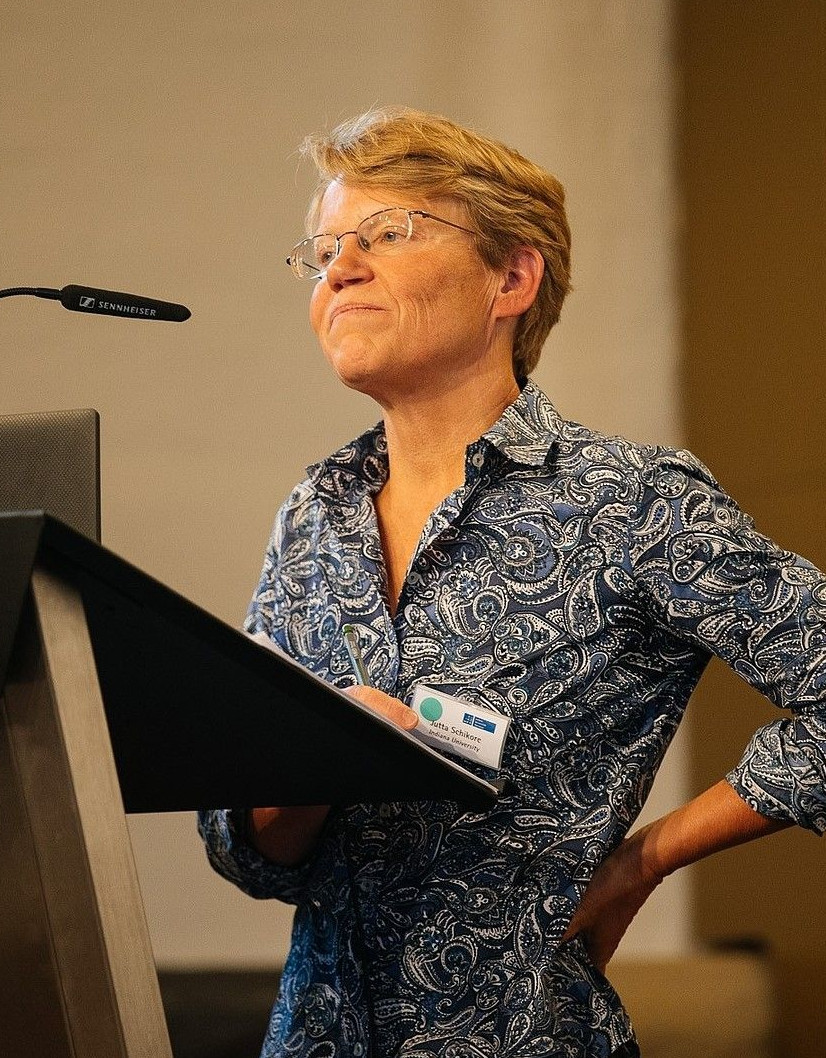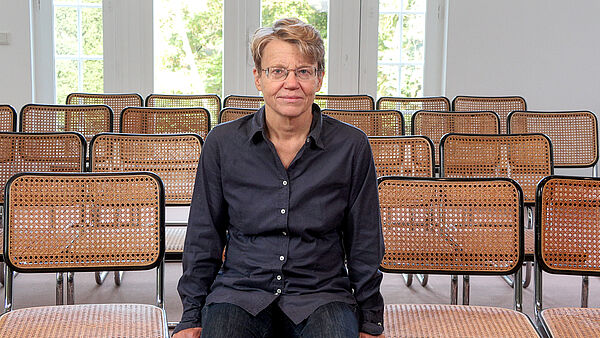
Jutta Schickore, Dr. phil.
Professor of History and Philosophy of Science and Medicine
Indiana University Bloomington
Born in 1964 in Hamburg, Germany
Dr. phil. in Philosophy from the Universität Hamburg
Project
Causes, Hypotheses, and Empirical Checks: Working Philosophies of Science in the German Lands Around 1800
My project will illuminate a neglected period in the history of philosophy of science, the period between Newton’s death and the 1830s. It has long been assumed that these decades were the “Dark Ages” of philosophy of science and that modern philosophy of science emerged only in the second third of the 19th century. Focusing on the German lands, I show that this assumption is incorrect. In fact, throughout the 18th and early 19th centuries, scientific practitioners and philosopher-educators intensely discussed the particulars of scientific inquiry, the active search for causes, hypotheses and hypothesis testing, and uncertain experimental outcomes. It appears that the “economic” sciences – those fields of inquiry concerning human health and prosperity – were significant triggers for these “working philosophies.” They presented problems that were both urgent and intricate, such as finding the causes of food spoilage or suspicious deaths; correctly analyzing rare chemical composites; or reliably testing the quality of olive oil and wine. Economic sciences also provided conceptual, methodological, and practical resources to address those problems. My book traces working philosophies in experimental reports and also in numerous treatises on “applied logic” authored by lesser-known philosopher-educators. The book will spell out how incorporating working philosophies transforms the historiography of philosophy of science.Recommended Reading
Schickore, Jutta. About Method: Experimenters, Snake Venom, and the History of Writing Scientifically. Chicago: University of Chicago Press, 2017.
–. “‘Dare Explanations’ (Wagerklärungen): Hypothetical Thinking in Late Eighteenth- and Early Nineteenth-Century German Philosophy of Science.” HOPOS 13, no. 2 (2023): 387–412. https://doi.org/10.1086/726182.
–. “Introduction: Practices, Strategies, and Methodologies of Experimental Control in Historical Perspective.” In Elusive Phenomena, Unwieldy Things: Historical Perspectives on Experimental Control, edited by Jutta Schickore and William R. Newman, 1–19. Cham: Springer, 2024. https://doi.org/10.1007/978-3-031-52954-2_1.
Colloquium, 16.10.2024
Working Philosophies of Science in the German Lands, ca. 1760–1820
It is often assumed that modern philosophy of science emerged in the mid-nineteenth century, with William Herschel, William Whewell, and John Stuart Mill among the protagonists. Modern philosophers of science grappled with significant theoretical developments in physics and chemistry, such as the emergence of chemical and physical atomism, the wave theory of light, and the unified theory of electromagnetism, and, in the early twentieth century, they tried to come to grips with relativity theory and quantum mechanics.
My talk outlines a different trajectory for philosophy of science. Focusing on the German lands, I characterize eighteenth- and early nineteenth-century “working philosophies” of scientific inquiry. I extract working philosophies from the many books on practical logic [Angewandte Denklehre] that were published at the time, as well as from scientific treatises. Both kinds of texts discuss how best to do empirical science.
These working philosophies frame scientific research as causal inquiry. The image of science that emerges from books on practical logic and scientific writings is that empirical research deals with a fragile web of causes and circumstances—some visible, others not. Countless details must be considered. Observation, systematic trials, and hypotheses work together to yield hopefully useful, but nevertheless fallible knowledge about cause-effect relations. Because of the fragility of these relations, repetitions of trials and other validation practices are crucial to secure empirical findings. Absolute certainty, however, is out of reach.
I want to suggest that working philosophies were inspired and shaped by research that concerned human health and prosperity—research in pharmacology, clinical and veterinary medicine, pedagogy, agriculture, applied chemistry, and mining. Such research dealt with problems both urgent and intricate, such as poisoning, food spoilage, the location of vein deposits in the earth, and effective instruction in schools. Working philosophies are situated at a double nexus: They connect early modern understandings of nature and how best to investigate it to the familiar nineteenth-century philosophies of science. They also connect theoretical academic philosophy (Kant, Schelling, and others), to the practical difficulties that scientific practitioners encountered as they pursued their research. Notably, working philosophies lived on outside formal logic and foundational theoretical philosophy until well into the twentieth century.
Publications from the Fellow Library
Schickore, Jutta (Cham, Switzerland, 2025)
Traditions of analysis and synthesis Archimedes ; volume 73
Schickore, Jutta ([Cambridge], 2024)
Schickore, Jutta (Cham, 2024)
Elusive phenomena, unwieldy things : historical perspectives on experimental control Archimedes ; volume 71
Schickore, Jutta (Chicago, Ill., 2023)
Schickore, Jutta (Baltimore, Md, 2022)
Schickore, Jutta (London, 2021)
Methodological ideas in past experimental inquiry : rigor checks around 1800
Schickore, Jutta (Chicago, 2020)
About method : experimenters, snake venom, and the history of writing scientifically
